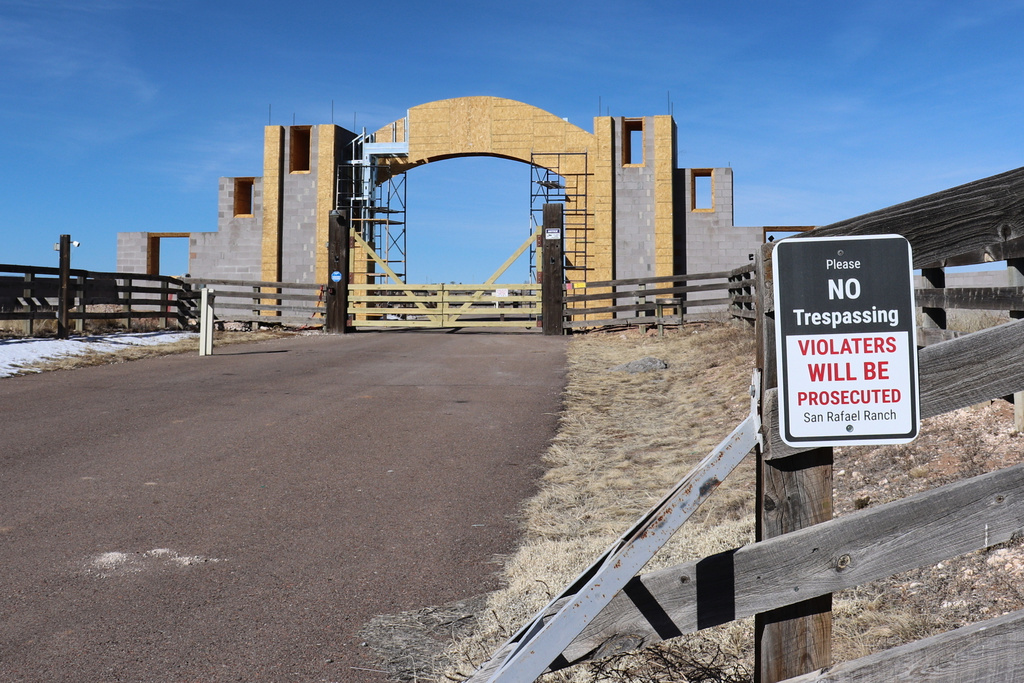Jury selection will get underway Monday in the seditious conspiracy trial of former Proud Boys national chairman Enrique Tarrio and four other members of the extremist group accused of plotting to attack the U.S. Capitol on Jan. 6, 2021, in a desperate bid to overturn President Joe Biden's victory.
Tarrio and four of his lieutenants are heading to trial in Washington just weeks after two leaders of another extremist group, the Oath Keepers, were convicted of seditious conspiracy in a major victory for the Justice Department's extensive Jan. 6 prosecution.
Tarrio is perhaps the highest-profile defendant to face jurors yet in the attack that halted the certification of President Biden's win, left dozens of police officers injured and led to nearly 1,000 arrests. Tarrio, of Miami, and the others — Ethan Nordean, Zachary Rehl, Dominic Pezzola and Joseph Biggs — are charged with several other crimes in addition to seditious conspiracy.
If convicted of sedition, they could face up to 20 years in prison. Jury selection is likely to take several days and the trial is expected to last at least six weeks.
Tarrio wasn't in Washington on Jan. 6 because he had been arrested two days earlier on charges that he vandalized a Black Lives Matter banner at a historic Black church during a protest in December 2020. But prosecutors say he was the leader of a conspiracy to stop the transfer of power from President Donald Trump to Biden.

Proud Boys Charged With Seditious Conspiracy In Capitol Riot
The seditious conspiracy charges are among the most serious filed so far.
Days before the riot, Tarrio posted on social media about "revolution," according to court papers. Citing what they alleged was an encrypted message group created by Tarrio, authorities say members discussed attacking the Capitol. One message said: "Time to stack those bodies in front of Capitol Hill." Another asked whether people were going to "push thru police lines and storm the capitol buildings?"
Prosecutors allege that even after his arrest, Tarrio kept command over the Proud Boys who attacked the Capitol on Jan. 6 and cheered on their actions from afar. As rioters stormed the building, he posted "don't (expletive) leave" on social media, and then later "We did this..."
Nordean, Pezzola, Biggs and Rehl were part of the first wave of rioters to push onto Capitol grounds and charge past police barricades toward the building, according to prosecutors. Pezzola used a riot shield he stole from a Capitol police officer to break a window, allowing the first rioters to enter the building, prosecutors allege.
"January 6 will be a day in infamy," Biggs said in a video outside the Capitol, according to court papers.
Nordean, of Auburn, Washington, was a Proud Boys chapter president; Biggs, of Ormond Beach, Florida, was a self-described Proud Boys organizer; Rehl was president of the Proud Boys chapter in Philadelphia; and Dominic Pezzola was a Proud Boys member from Rochester, New York.
Defense attorneys have denied that the Proud Boys leaders planned or led an attack on the Capitol.

Jan 6. Hearing Focuses On Role Of Proud Boys and Oath Keepers
Lawmakers shared evidence that tied Trump's associate Roger Stone and Trump’s former national security adviser Michael Flynn to the Proud Boys.
Tarrio's lawyers say he didn't instruct or encourage anyone to go into the Capitol or engage in violent or destructive behavior. Nordean's attorney accused the Justice Department of selective prosecution and targeting him based on his political associations and beliefs. Rehl's lawyer asked the judge to toss the indictment on First Amendment grounds, arguing that the case rested solely on Rehl's political views and free speech.
Another former Proud Boys leader, Jeremy Joseph Bertino, pleaded guilty to seditious conspiracy in October, and could testify against Tarrio and the others under a cooperation deal with the government.
Last month's guilty verdicts for Oath Keepers founder Stewart Rhodes and Florida chapter leader Kelly Meggs were the first seditious conspiracy trial convictions in decades. Seditious conspiracy, enacted after the Civil War to arrest Southerners who might keep fighting the U.S. government, has rarely been brought in recent memory, with mixed results.
Jurors acquitted three other Oath Keeper defendants of seditious conspiracy, although they were convicted of other crimes. Four others associated with the Oath Keepers are also currently standing trial for seditious conspiracy.
Additional reporting by The Associated Press.










